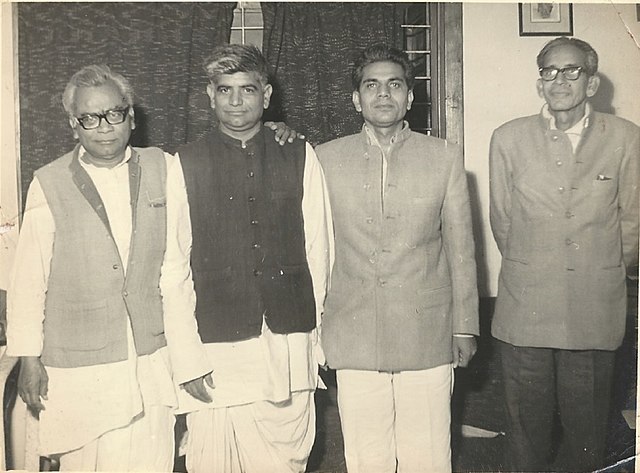Ram Manohar Lohia was an activist in the Indian independence movement and a socialist political leader. During the last phase of British rule in India, he worked with the Congress Radio which was broadcast secretly from various places in Bombay until 1942.
Lohia on a 1977 stamp of India
Dr Ram Manohar Lohia, Mani Ram Bagri, Madhu Limaye, S M Joshi
Lohia on a 1997 stamp of India
Statue of Lohia in Margao, Goa.
Congress Radio, also known as Azad Radio, was an underground radio station that operated for about three months during the Quit India Movement of 1942, a movement launched by Mahatma Gandhi against the British Raj for independence of India. Congress Radio was the broadcasting mouthpiece of the Indian National Congress and functioned from different locations in Bombay, present-day Mumbai, and briefly from Nashik. It was organized by Usha Mehta (1920–2000), then a 22-year student activist, with the help of amateur radio operators. Others who were involved included Vithalbhai Jhaveri, Vitthaldas Khakar, Chandrakant Jhaveri, and Babubhai Thakkar. The broadcasting equipment was supplied by Nanik Motwane of Chicago Radio, Bombay. Prominent leaders of the Indian independence movement like Ram Manohar Lohia, Achyutrao Patwardhan, and Purushottam Trikamdas were also associated with Congress Radio.
Blitz newspaper clipping from 1946 showing Mehta's contributions to the underground radio station





